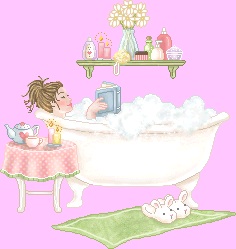 Today I want to talk about something so normal in our western routine : personal hygiene. While just soap and water may be your favourite choice when it comes to a bubbly bath, chances are that you use a sponge. But here comes my question : what sponge do you use? And have you ever thought about the impacts you may have? You may think that by using artificial sponges you are helping the environment by eliminating the needs for harvesting what is in fact an animal (yes, sponges are animals to all effects!) - but think again! Artificial sponges are often made from plastic materials such as nylon which involve harvesting of oil with much greater environmental impacts. Not to mention their non biodegradability !!! So - can we call ourself sustainable if we use natural sponges for our bathing routine?! Bath sponges have been collected for centuries, since prehistoric times, and so one may think that it must be a sustainable practice. But studies on population levels of these sponge species (because, think carefully, not all sponges make a good bath sponge!) are far and few, with some reporting a steady and slow decline in numbers since 1986 in the Mediterranean, likely due to a combination of factors including climatic changes... Greece is and was one of the main exporter of sponges and one of the most comprehensive studies on sponge populations health comes, in fact, from the Aegean Sea (voultsiadou et al 2011). The authors observed that while some declines in number were obvious, some healthy populations are still present in the area. Which is good news for sponge enthusiasts out there! Still, they call for some management actions such as increased monitoring and regulations on harvesting. Other measures can include establishing a sponge aquaculture in the Mediterranean. Sponge aquaculture already exists in other parts of the globe such as Asia and it can be fairly successful. You can get your hands on some of these online, however, depending on where in the globe you are, shipping may have a greater carbon footprint, defeating the point of being more sustainable! Moreover, as sponges could be cultivated as part of integrated aquaculture techniques, sponge aquaculture may actually bring some extra benefits such as offsetting the environmental costs of other fisheries (contributing to the nutrient cycling in these set ups!). So to answer our question Is it sustainable to wash yourself with a natural sponge? The answer is Yes BUT there is a BUT.. Which is that you have to make it sustainable by following these simple steps:
0 Comments
Leave a Reply. |
Disclaimer: some posts may contain affiliate links. At no extra costs to you, buying through the link will help me in this blogging journey!
Archives
January 2023
Categories
All
|
Photos used under Creative Commons from doustpauline of > \whatwhenwhere/ <all behind., R'lyeh Imaging, Casey Hugelfink, Eric Tessmer, Honolulu Hawaii, marcoverch, shixart1985, Pascal Volk, ericcooper3, shixart1985, Rennett Stowe, romanboed, Free Public Domain Illustrations by rawpixel, Double--M, shixart1985, Ewan-M, focusonmore.com, Bennilover, dsgetch
 RSS Feed
RSS Feed
